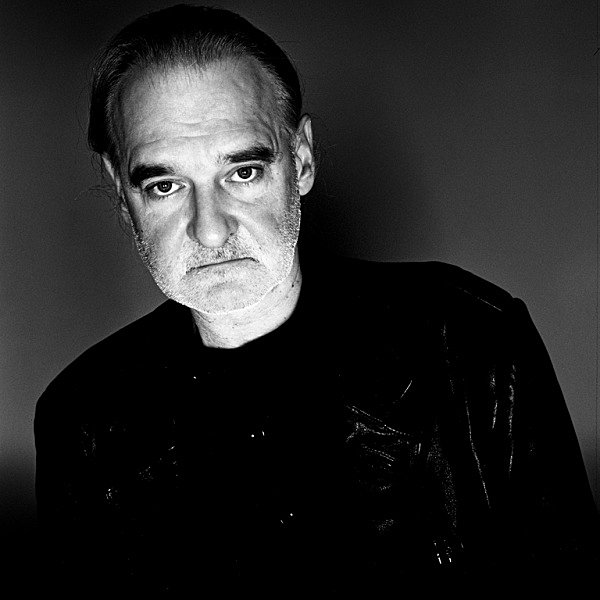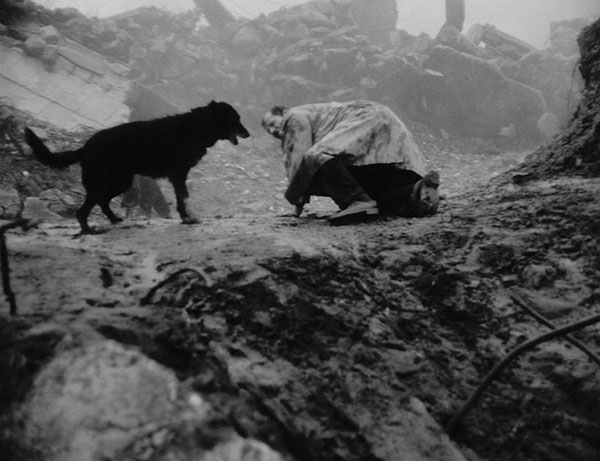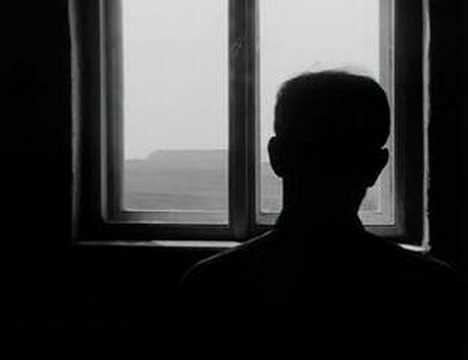5 STARS
“Kárhozat”
General Information:
All information below is taken from the following link: http://www.imdb.com/title/tt0095475/
15 120 min – Crime | Drama | Romance – 30 March 2001(UK)
Director
Writer
László Krasznahorkai; Béla Tarr
Stars
Gábor Balogh; János Balogh; Péter Breznyik Berg
Plot:
A man with no reason to live spends his days falling in love with a singer and doing absolutely nothing.
Review:
There are some films which drain your emotions so much that by the end you quite literally have no energy. These kinds of films are my favourite films as they are the most intense of cinematic experiences and will always stay with me.
By the end of Gaspar Noe’s Irreversible, I felt brain-shatteringly disturbed. By the end of Stanley Kubrick’s 2001: A Space Odyssey, I felt intense awe at the universe. By the end of Bela Tarr’s Damnation, I felt assaulted, insulted and depressed. This is not hyperbole. I’ve never actually felt insulted by a film before, but then again there’s a first time for everything. It’s as if the entire film is sticking two fingers directly up at the audience whilst repeatedly drolling in pure deadpan monotone: “I don’t care if you like this”. The film is pure sadist – it depresses you for your own “entertainment”. Yay. The film quite literally takes all of the dopamine you have in your brain, ties it up, beats it to the ground and then has the cheek to steal all of the wallets for later. It is an affront to sheer social acceptance, but Christ I think it’s genius.
In essence, Damnation is one great big existential crisis. In fact never has the clichéd phrase “To be or not to be” perhaps meant so much; even though it is never mentioned, you wonder why none of the characters in this film never bother with suicide. Again, this is not hyperbole.
I haven’t actually described the plot as of such, but this would be meaningless. This is Bela Tarr. A director who has stated his dislike for narrative filmmaking and instead focuses on mood and character’s inner turmoil. Think of the film as a series of meaningless events which continuously go on and on and on…and on….a bit like life in that respect, one unconnected second after the next, and yes this is presumably the message of the film. The film’s point is that it doesn’t have one.
In fact, it is even pointless to name ‘the events’ in the film, as they’re so mundane, I’m not going to even bother stating them. What I will say however is that Bela Tarr should deserve a trophy for directing the most depressing sex scene I have ever seen.

See that face she’s pulling? It doesn’t change, it is deadpan throughout. There is hardly any movement. There is no heavy breathing. There are no moans. Barely any movement. Behold, the worst erotic scene in cinema history.
They look so miserable about copulating, that they might as well decapitate their own toes and prod each other in the stomachs repeatedly. In fact, I bet if they did that, they might even smile. This image I have conjured sounds macabre and barbaric, but you haven’t had to sit through a two-hour film where the climactic scene involves the main character barking at a dog for five minutes (because, yes that’s right, his life has become so meaningless and pointless that he doesn’t even communicate with his own species).
I am reminded of Bela Tarr’s final film, The Turin Horse. The two main characters in The Turin Horse repeat the same daily tasks over and over again: eating potatoes and fetching water from the well. The difference between The Turin Horse and this film is that in this film, the actions performed by the characters are not repeated again and again, instead it is just endless mundanities. In other words, The Turin Horse is high on non-naturalistic metaphor to express the pointlessness of existence (or to be more precise, the repetitiveness of day-to-day living), whereas this film mainly uses realism (to the point of tedious brilliance) to express it’s ideas. I use the phrase “tedious brilliance”. How can I explain this? There are numerous points where you expect the film to end, but it doesn’t, instead it goes on and on and on. Usually this would be a negative thing. So why a positive? The only way I can explain this is by comparing it to stand-up comedy. A stand-up comedian will say a joke, and then later on in the act, they’ll repeat it to good effect. They’ll then call-back the joke again later on to even more great effect. However, the next time they call-back the joke, it feels tired and ridiculous. You don’t expect them to call-back the joke again. Accept they do, and because of this, the routine feels so ridiculous that it becomes funnier. Damnation drags on for so long, that it borders on parody. The longer it goes on for, the more strangely entertaining it gets. This is difficult to explain. But if a film involves a sex-scene where the characters look like they’re inmates at Abu Ghraib, and consists of a character barking at a dog, you have to somehow understand that this film is strangely self-aware to the point of narcissism.
What else happens? Well, the main character falls in love with a bar singer. The only thing keeping him alive is the possibility of love. The main character stares out of a window observing the rain, and observing people walk past and dogs trot along. Also, just to point out on a stylistic of the film, Bela Tarr goes to extraordinary lengths to emphasise the mundanity of every day existence.
Not only will he use exceptionally long takes (we’re talking more than five minutes) to show the scene unfold and drag on in real time; but the takes will be longer than necessary. A scene will usually end with the characters walking out of shot, but we won’t cut to the next shot/scene. That’s right. The camera will simply linger on the location for ten seconds, whilst we see the wind push leaves away, or random pedestrians across the street. Life continues when the characters walk out of shot. The universe surrounding them is one hat keeps on perpetuating. As the other pedestrians walk into shot, you have to contemplate the notion that each of their day-to-day routines is presumably the exact same as the main characters in this film. (No, that is not an excuse for a sequel). All the while (like all of Tarr’s other films), it is shot in expressionistic high-contrast black-and-white – just to make every simpering frame more bleak. Think of it as 24 frames per second of sheer self-loathing.
The film spirals on like this for two whole hours.But the interesting thing is that it is strangely never boring. Bela Tarr is such a skilled filmmaker that he can make a film actually about every day mundanities and characters bored with their very existence seem strangely engaging. But not engaging in the sense that your eyes are bulging wide waiting for what will happen next. But more of a paradoxed form of engaging…the scenes are so dull, and filled with so much melancholy and dreariness and sheer depression, that they become engaging due to how ridiculously pointless and bleak they are. Hence why the film is a sadomasochistic experience. It insults you for merely wanting to watch it’s self-aware pointless narrative. Whether this is a positive or a negative thing I am unsure. But what I am certainly sure of is that Bela Tarr desperately needs to see a therapist. As do I after seeing this.
Conclusion:
Almost as depressing as The Turin Horse, but less metaphysical and focused more on realism. The film makes the everyday become a philosophical focus point, and makes your own damned existence seem so pointless that you might as well not bother. To be or not to be indeed. Go on Hamlet, shoot yourself. But before you do that, watch some rain dripping down a window for entertainment and bark at a dog because you’ve lost all sense of social convention and sanity.


